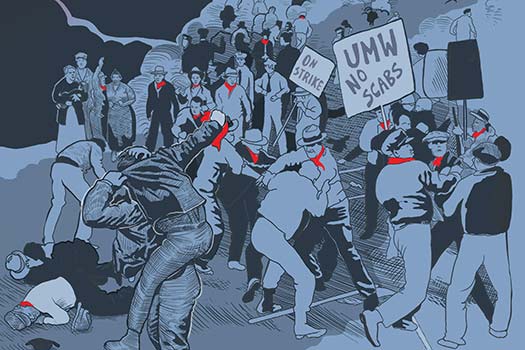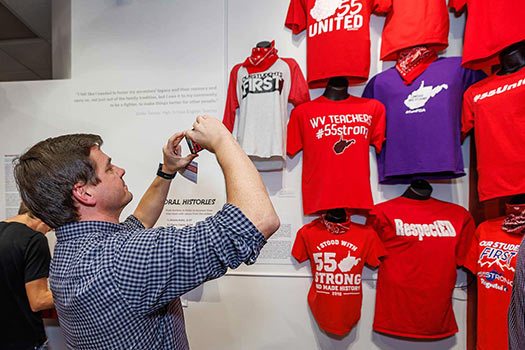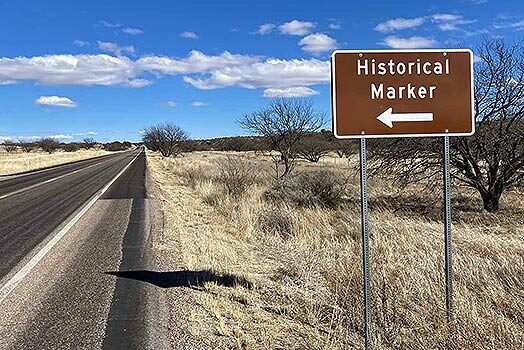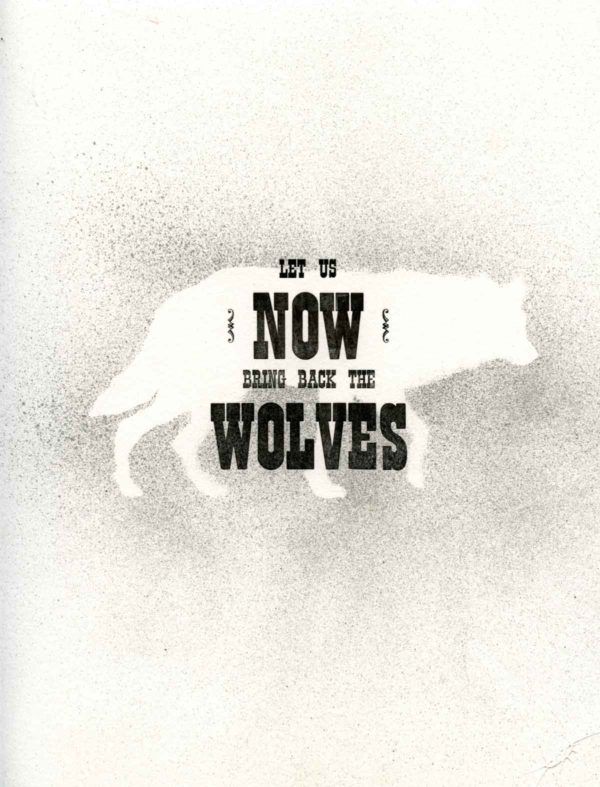
“We were taught how the pioneers went into the West. They opened their eyes, and made up what things could be.”
On the minds and tongues of several of my friends and cohorts lately has been Levi’s unveiling of their new ad campaign focusing on the near-to-Pittsburgh borough of Braddock, PA. Rumors that Levi’s was throwing cash at Braddock-based projects and hiring local models turned out to be true, yet somehow the end product of their presence in the city has left most of us feeling a little more ill than we had anticipated.
Much has been written about Braddock in national news, touting the decimated city as a destination for young artists/entrepenuers and an example of innovative local government striving to build anew in the (very real) rubble of the old. For many, Braddock is iconic in it’s present stature, and the historical injuries wrought upon the borough by profit-motivated power mongers continued most recently as UPMC withdrew it’s Braddock hospital facility this January – managing also to remove the only ATM and cafeteria from the city.
Yet, for all the real work being done to improve upon Braddock’s current state, an astounding feature of the new Levi’s spot, which occupied the banner of the NYTimes online this past week, is that it doesn’t have to say much of anything about Braddock to make your skin crawl. Indeed, whatever the state of affairs in the struggling old company town, Levi’s primary concern is that it makes an awesome backdrop for their strange new neo-nationalist branding – a backdrop with real grit that they didn’t have to truck in. The ad in question is a genius melding of amnesiac musings, blue collar fetishism, and astoundingly brazen brand-name posturing. A town built and destroyed by a goliath industry which decimated American cities by outsourcing labor overseas (Carnegie Steel) being touted as a “frontier” by another massive company which has, itself, outsourced a majority of it’s labor overseas (Levi’s)? If we were thirsty for a primer on how slick corporate campaigns can rewrite history and ignore contemporary fact, we sure got a compelling one. That Levi’s threw grants at local creative initiatives in their wake doesn’t quell the sting of watching a global corporate fashion mogul set up shop in your backyard because the rubble looks cool.
As an exercise in probably-accidental-yet-disturbing parallels, I’ll offer the observation two friends recently pointed out to me. The swelling, glorious music accompanying Levi’s new “Go Forth” Braddock spot is an edited-for-time version of the prelude to Wagner’s “Rheingold” – which was also used masterfully in the opening sequence of Terrance Malick’s beautifully terrifying Pocahontas treatment, “The New World” (2005). In this opening, Powhatan people rush to the edge of a forested cliffside to watch, for the first time, three massive wooden English ships (under charter from the colonialist Virginia Company of London) slipping with a quiet, alien dread into an idyllic bay after months at sea. Armored men, prisoners, and malnourished indentured settlers step uneasily into the marshland of what would soon become the Jamestown Colony. The disturbing symmetry of the use of Wagner’s droning prelude in both Malick’s film and Levi’s new manifest-destiny-themed advertising campaign is sharply illustrative and remarkably unsettling, to say the least.
“A long time ago, things got broken here. People got sad and left. Maybe the world breaks on purpose so we can have work to do.”
If you need a chaser after that, try this fairly hilarious Bukowski-themed lampoon of the earlier Levi’s “O’ Pioneers” ad (which used a voiceover reading of a Whitman poem).








You folks *really* need to get over yourselves. i hosted your annual retreat in my own place and didn’t even get so much as a thank you note.
levi’s is rebuilding our community’s youth center- what have you done for braddock-ever? you couldn’t even clean up after yourselves during your brief stay.
let’s have this debate, folks. you know where i live.
Sincerely,
Mayor John Fetterman
Braddock, PA
The way I read Shaun’s post was that it was a critique aimed at corporate America and Levi’s marketing strategies and not the grassroots efforts of people in Braddock and the mayor.
Levi’s has made their fortune off sweatshops and their feel-good ads mask their labor practices. It is commendable that they helped rebuilt the community youth center in Braddock. Nearly all corporations do charity work. This should not, however, blind us to class politics and the means by which corporate power has run communities and the environment into the ground.
What I find disheartening about the mayor’s post is that he seems to imply that Levi’s (a multi-billion corporation) has benefited the community and Justseeds has done nothing positive. It discredits the efforts that the Pittsburgh members (Mary, Shaun, Bec, and Swoon) have done in the past and continue to do, and it assumes that a massive corporation and a handful of artists are on the same playing field.
Critique and analysis of corporations, cities and the issues they face is always needed and the mayor’s comments seems to want to dismiss the issue of the post – the content of the Levi’s ad.
Lastly, people often make the mistake that Justseeds speaks as a unified group. There is not a “we” in Justseeds. There are 25 members all with different opinions and backgrounds living from Montreal to Mexico City and Oakland to Philadelphia. Half of the collective was not even at the last retreat in Braddock, as an aside, the mayor was incredibly generous is letting us host the retreat in Braddock. I cannot imagine for a second that JS members did not thank him during the retreat and nor do I buy the notion that we did not clean up after ourselves. We did a large group clean up and I personally helped load up Shaun’s truck with recycled goods and trash. If we did not clean the house to your standards, please accept our apologies and let us know some way that we can repay your generosity in the near future.
So, Mayor John, let’s continue the dialogue, but with courtesy and discussion that is critical and constructive. “We” artists in Justseeds, four of which live in Pittsburgh, two with studios in Braddock, are much closer allies than a multi-national corporation.
swoon is not included in any of this. i love the girl and would lay down in traffic for her.
this conversation was not started in a “constructive” way. it was all one-sided, with this blog spouting off about something you didn’t even take the time to discuss here locally.
with levi’s help, we saved an abandoned church that will now serve braddock’s young people for decades to come. moreover, it was named after a little 18 month-old girl who was raped by her father, and left outside to freeze to death in the dead of winter.
in seven years, NO ONE, NO ONE cared enough to help or gave any money to fix this church up. the whole thing was ready come down, and it was levi’s that helped. there’s no logos in town, no models were used, and everything is dignified and 100% of the benefit was conferred on the community.
we’ve also been able to double the size of the urban farm, fix the batting cage crushed by last winter’s snow, and numerous other community projects. it is also may be the best chance we have of keeping our library open.
..and this blog wants to take a swipe at all of that with a smug sense of paternalism like we sold the island for three casks of whiskey and some colorful, shiny beads.
if you want a “constructive” dialogue, start it off that way. any critique of the levi’s campaign is a critique of me and everything i’ve done in town for the past 9 years.
call it out, and you call me out.
i’m right here.
Mayor John Fetterman
I wouldn’t criticize the mayor for accepting the offer of help from Levi’s and I don’t feel like this post has anything to do with that. I think the problem here is about what role corporations should play in our lives.
Should corporations swoop in every once in a while to provide charity or should corporations be there for the long term, providing the jobs that mean people can pay the taxes that go toward the continual development of local infrastructure like libraries and community centers?
In the short term, any struggling town can benefit from charity. A lot of international aid works like this in developing countries when there is a natural disaster or famine. But it’s not a sustainable form of development because the people affected are left with no extra power or resources to prevent it from happening again in the future.
I’ve no doubt the children of Braddock will benefit from the new community center but what happens when they need to start earning a living? Unless they move to an island in the Pacific they won’t get a job from Levi’s. They certainly won’t be able to pay any taxes in Braddock to help maintain that community center either.
Mayor,
Here’s the problem explained by a third party:
http://www.blackbookmag.com/article/john-hillcoats-regrettable-levis-commercial/20574
The author, Edmund Mullins, writes:
“What I find bothersome, if not hypocritical, in Levi’s choice of Braddock, is that it’s a town that was nearly eradicated because of disappearing jobs—the Monongahela River valley around Pittsburgh (which Braddock is basically a suburb of) lost some thirty thousand of them during the 80’s alone. Now, while I think it’s all well and good that Levi’s is currently donating money ($2million) to Braddock’s redevelopment, and casting its residents in their commercials for top dollar, I can’t help but be reminded that Levi’s spent the 90’s closing down all of its North American factories, eliminating jobs aplenty in favor of cheap(er) overseas labor. So why aren’t they shooting commercials and funneling money into the communities they’ve affected themselves? You know, other places where the world broke “on purpose?”
To my thinking, this is a clear case of the problem masquerading as the solution.”
a few years back i heard a great line i’ll now paraphrase “with the invention of illustrator and photoshop, everyone thinks they’re an artist.”
now, with blogs, many fancy themselves noam chomsky, each quivering in anticipation that their hackneyed take-down will contain the zinger of this partnership that i haven’t seen coming for a mile out.
even better? nigel’s critique isn’t even his own, his weapon of choice actually quotes tom waits?? don’t most people stop doing that by sophomore year in college?–and then from blackbook?!? now those are some change agents preoccupied for the oppressed and working poor.
and, for the record, i’d be delighted to build the blackbook wing of the community center, or the angry, blogging misanthropes free clinic in braddock (or any number of our mon valley communities) but that would require more than sitting on their asses and typing cliche screeds about corporate blah blah.
add up all these deskchair warriors of social justice, typing away on their chinese-made ipads while sipping fair trade coffee and not one of them has ever performed sustained effort to help a community like braddock.
in closing, back to where this all began, since there is no “we” in justseeds, the final portion of this post is specifically for mr. shaun slifer.
who, after relocating from perhaps the whitest and most hyper-gentrified city in the country, selected new rapidly gentrifing pittsburgh neighborhood a block down from a cupcake shop, ‘pan-asian’ fusion cuisine, and a designer shoe boutique.
shaun- i could introduce you to my friend mayor phil in duquesne, a small mill town across the mon, and you can move justseeds THERE and turn things around. shaun, they’ve had nine arsons in july alone, along with other violence.(all, much like braddock used to) then, nine years later, i can take cheap, uniformed shots at you and your efforts to heal Duquesne (on my blog, natch!) AFTER my friends crash at your place gratis, the year prior.
to the critics: please, do something first, *then* critique, and if you must, please at least be original. as dali once said, “The first man to compare the cheeks of a young woman to a rose was obviously a poet; the first to repeat it was possibly an idiot.” we’ve got a daisy chain of devastated towns here in the mon valley. i’ll even make the introductions.
levi’s is flawed, i’m deeply flawed, but, so are you. 2/3 of that sentence is trying. and, in lyrical tribute to my bud eddie mullins at blackbook: meatloaf once said “two out of three ain’t bad.”
mayor john fetterman
ps. allow me to digress to the petty and silly if i may: in their own words, no less. now, don’t get me wrong, no thank you’s are ever needed and i was happy to host, BUT since you were so sure..
“I cannot imagine for a second that JS members did not thank him during the retreat ”
http://justseeds.org/blog/2009/08/80_of_justseeds.html
let me say bill d. is my boy, love him like a brother, and he would give you the shirt off his back, but he didn’t put y’all up in that convent. it was i, your colonial overlord!
and, since you were teensy bit off about that, me thinks there was a wee bit of cleanup after yinz left, too.
again, fine! i kid! in the end, i only ask that people be fair and accurate. hate me or hate levi’s, hate us both- that’s up to you- just be fair. even the most partisan among us must acknowledge that levi’s gift has really helped this community AND no one else is exactly stepping up to help these efforts now and CERTAINLY NOT through the last 40 years of abandonment. levi’s did a truly decent thing, especially since the the state’s LARGEST public charity bailed on us during the same period.
just don’t go through life being a bunch of dennis kuciniches. run for an election in life that you can actually win and be held accountable for tangible results.
mayor john
Mayor John says:
“any critique of the levi’s campaign is a critique of me and everything i’ve done in town for the past 9 years.”
It may feel that way, John, but it’s not. Shaun is pointing out a deep irony of capitalism: Levi’s offshoring of labor has decimated local communities just as surely as the collapse of the steel industry decimated Braddock. For Levi’s to associate its brand with the glamor of labor in a struggling company town is a double betrayal of the mill towns it helped destroy.
(If Braddock residents saw a UPMC ad glorifying its commitment to building community, I’m sure they’d feel just as sickened.)
But that irony is old news. It’s been around since Andrew Carnegie started building libraries.
But thinking the Levi’s ad is gross is not the same as thinking Mayor John made the wrong decision. $2 million is a lot of money. Hopefully, it will have a lasting impact in Braddock long after these ads are a distant memory.
Mayor Fetterman,
What you are trying to do in Braddock is hard, and I can understand you being defensive of the decisions you’ve made in involving a company like Levi’s in the short term development of projects that you hope to have long-lasting effects for your city’s residents.
I don’t think this article is shitting on those projects, on Braddock and how far it’s come in the past nine years, nor your role in serving dutifully as it’s Mayor. You’ve made difficult decisions, ones that involved choices that either way you turned, someone would criticize you for it, and will surely continue to be faced with more of the same.
This article is critical of Levi’s, of modern day corporate colonialism, and of how charity on a corporation’s part does not erase the past or current business practices, that have and continue to deteriorate struggling city populations such as your own here in Braddock, and across the globe.
I find it disheartening that you have chosen to bring very personal matters in as leverage in what sounds more like an ad hominem attack in the interest of censoring another’s opinion, rather than arguing a counter-point to the main issues within Shaun’s article.
If you had issues with Justseeds and the way they behaved at the retreat, it’s your responsibility to share that grievance with them, theirs to hear you out, and all of you work towards an apology, an act of reparation to you and the space, whatever the dialogue could produce.
Furthermore, the conclusions you draw of Shaun Slifer are presumptuous. You know little about him personally. You assume that he is an armchair-blogging leftist intellectual as opposed to an active participant in resistance in solidarity with others. Saddling him with the gentrification of his former city is unfair; no single person is responsible for the gentrification of an area. Most people compromise when it comes to the place they live in, the university they attend or the job they hold, because they feel it will help them achieve a greater goal later on. The location of the head-quarters was not Shaun’s decision alone, as it never can be in a proper collective. Do you hold the same critique for BikePGH, with whom Justseeds shares the location?
It saddens me too, that you seem more willing to tear down Shaun (and Justseeds) as a hard-thinking/working, actively organizing individuals, than you are willing to accept a critique of a massive international corporation like Levi’s. Whose relationship does your criticism or Shaun’s hurt more, for that matter? Will Levi’s withdraw their support from you/Braddock because someone wrote a critical article about their and other corporations’ obscuring their shoddy business practices with slick ad campaigns? What of your and Braddock’s relationship to the artists of Justseeds, to Shaun and his friends who have dedicated time rallying for Braddock, working on projects here, and trying to build something better for it’s people WITH you?
We all can’t be the mayor and make a difference of a struggling city; your activism is different from the methods of other, but all are valuable to a community, and can work in solidarity with each other.
This article was not intended as a critique of Braddock, you as its Mayor, nor your decision to accept Levi’s charity. I didn’t read it as such, and the people I know who have read it don’t either. I encourage you to reconsider what you find so personally offensive in this article as less about you and Braddock and more about the larger mechanisms of corporate culture that wreak such havoc on our lives without any way of holding them accountable, and to reconsider your assessment of Justseeds and Shaun.
Hey, leave me out of this!
Mayor John,
I am deeply saddened that you felt unacknowledged and unappreciated for being our gracious host in Braddock during our annual retreat a year ago, and that you felt our clean-up efforts were not enough. I also regret that you didn’t reach out to us earlier about that, so that we could offer our gratitude and apologies in a more productive forum.
I have not been involved in any work in Braddock so far. I moved to Pittsburgh last fall from Detroit, where I spent nearly a decade running a community bike shop, starting and running a neighborhood garden, planning food distribution program, volunteering at local schools, shelters, soup kitchens, and urban farms, and organizing many free community art programs, all with little or no money. Given that, I have some sense of the magnitude of task involved in turning around a place that is not empty of people, but empty of resources. I would not argue with you for taking Levi’s money, or for taking anyone’s money, to make the changes that you, and the citizens of Braddock, feel are necessary and right.
However, the world doesn’t break on purpose. Or at least, the parts of the world that break on purpose are part of natural cycles of growth and decay, which support each other through the new being fertilized by the old. The destruction and abandonment known in both Detroit and Braddock was man-made. These places broke over time due to calculated disinvestment, decisions that weighed profit over people, institutional and corporate policies that were made using charts of numbers rather than beating hearts, actions that were taken with fear instead of love.
I sincerely hope we can turn this around, and that I and other Justseeds members can be helpful partners in the transformative work that’s currently happening in Braddock. I’d be happy to speak with you in the real world, any time, if you’re interested. My only requirement is that you are willing to put the attacks to the side; that you are willing to try to speak with love instead of fear.
Thank you.
Mayor
Again, thank you for letting us stay in your place. I apologize if you feel we took advantage of your goodwill in anyway.
I do however take offense to your hard edge critique of 25 individuals located in 14 cities across North America, who as a group make up Justseeds, it is quite amazing. To dismiss the work these people do and state that only yourself and Levi’s are “trying” is inane. Obviously the folks in Justseeds are not elected officials or multi-national corporations and thus are working in different (often less public) manners to make positive change.
In Shaun’s short critique of the absurd Levi’s commercial there was no critique of your collaboration with the company. Yet apparently you saw any critique “coming for a mile out”. I am thus astounded by your reactionary responses to a critique obviously not directed at “all the real work being done to improve upon Braddok’s current state” (as Shaun stated) but at a corporation that is touting “urban frontiers” as something that “breaks on purpose” because we need something to do. What kind of idiotic history lesson is Levi’s trying to push on us. You know and I know that communities across this country did get broke on purpose, and its because labor is cheaper elsewhere, and a corporation’s ties to community are as rooted as smoke blowing in the wind.
At least you guys got the infamous Mayor of the 15104 to post a comment! Lucky dogs!
Though, it was shocking to see a mayor (and Ivy grad) of any town type without using caps in the appropriate places. Just sayin’.
“Professionalism has been sent overseas… along with our jobs and our jeans”
I am not going to repeat more of the same, but my feelings echo all of the assertions that this blogpost was intended to criticize the practices of corporations not the mayor,the citizens of Braddock, or the decision to accept money from Levis. It is greatly disappointing that what has resulted is a childish personal attack, and a public airing of grievances that could have been discussed in a more appropriate and constructive way.
As far as corporations go, Levis is just one of many that engages in philanthropy and charity as a means of promoting an image as a socially responsible company to consumers and investors. It is a tactic that is meant to divert attention away from other issues that may include their labor or environmental practices, in addition to their political affiliations and complicity in repression and even murder. Levis is not unique. The list could go on and on: Nestle, Pfizer, Coca-Cola, Monsanto, Target…this is not an assertion, this is the hard truth.
And as far as the comments made about what “we”- Justseeds do in the real world in our commitment to work with community and support social justice movements, I think we have made a big effort to promote the work we do and the work of others, which is all well documented on this website and elsewhere.
Mr. Mayor, you don’t know me, but several years ago I helped install doors on the convent where Justseeds stayed, clean up Transformazium’s church and board up the windows there in addition to helping out with their public art project. Although these efforts are small in comparison to the work you do and the collective efforts of everyone working in Braddock on a daily basis, its what I contributed before I went back to my armchair to blog more.
Concerning the mess we made in the convent, as far as my knowledge goes, you do not even live there. And the people who lived there at the time of my visit would have more justification in criticizing any damage we did. Perhaps you own the building, but I think I saw you once the entire time I was there.
It is true that Levis billboards are not plastered all over Braddock, but I am going to go out on a limb and say that they are not the target audience with this ad campaign since I see posters of Braddock all over the bus stations in the shopping districts in Manhattan. This is making the working people into a brand. If this results in raising awareness about the situation in Braddock (as I have watched the other mini-films online- the one where you are interviewed and the one where people in Braddock are interviewed) then great. Somehow I doubt that it is going to improve the widespread unemployment and devastating economic crisis we currently face.
-Molly Fair
Justseeds member
Brooklyn, NY
In terms of recognizing when corporations find a market, employ a large part of the population, successfully market and integrate into corporate identity their community-aimed CSR, then leave the community for a lower cost production process and a higher paying market elsewhere, one could look at the hospitals of Pittsburgh, Pennsylvania. You can read/listen to Rustbelt’s broadcast of West Penn Hospital, Bloomield’s, consolidation, announced June 30th, 2010, here:
http://pittsburgh.indymedia.org/news/2010/07/35781.php#6_30_West_Penn_Hospital_May_Clos
There was a lot of doublespeak at this meeting that we will be analyzing in future broadcasts. In the meantime, I think it’s really important for citizens to practice analyzing how to face corporate intentions and still keep health, welfare, and livelihood in the forefront.
Regardless of what Levi’s has or hasn’t done for Braddock, it’s still a pretty corny ad…
I really appreciate the analysis of this Levi’s campaign in this post and in the comments and am in basic agreement. I’m neither a fan of the historical idea of pioneer nor the newer urban version because of its denial and arrogance, and at times violence, towards people that were/are already there. Settlers? Wha? A domination stance is not a good way to enter into a space.
I’m always glad to hear about some of the collaborations happening between community members in Braddock.
Mayor Fetterman’s tone here is familiar to me. I’m in power, I made these decisions, and I will resort to personal and unsubstantiated attacks to defend myself, instead of expecting and truly engaging with considered responses.
I’m catching on to this blog a little late, but I couldn’t help but to elaborate on the actual ad, especially regarding what the audience takes away from viewing it – which I see as blatantly about post-recession American Reconstruction. The ad needs to relate to the general public who knows nothing about Braddock, so it connects to the post-recession struggle this country is going through. It alludes to ‘work’ ideals of the Obama administration – “pioneer” and “frontier” are metaphors used to connect American identity to work ethic and innovation. Braddock is secondary because it has to be – an allegory, case study, and literal interpretation of the ‘work’ that needs to be done. The ruins look cool, but they also inspire thoughts of work in rebuilding this country. In one and a half minutes or less, what I think gets taken away with the audience is something along the lines of “Americans are rebuilding America, this is a great and respectable thing to do, levis likes this work.” The intention is to sell jeans, inspire, and to pay tribute.
My hunch is that the audience is on to corporate advertising strategies since it’s been decades since companies have latched brands on to much bigger, broader, concepts than the goods themselves could possibly carry the weight of. In a 2010 America, assuming that any mass-advertised goods are foreign made is a safe bet unless a company advertises the shit out of the fact that they are not (ie American Apparel…facing bankruptcy).
The disconnect between Levis the ad and Levis the business lies in the Capitalist system – as does the story of the rise and fall of Braddock, PA. Levis, a for-profit, capitalist corporation, supports and idealizes the work of non-profit, non-capitalist driven community initiatives. This scenario does not necessitate insincerity. Though it makes sense that, in addition to a community center and a very public tribute, Levis would have to take steps forward to come to a full reconciliation of what they like (American work) and what they do (hire abroad). I wonder if this is possible economically for them. I would love to see in this campaign the ad driving the product instead of the other way around.
To: Levi Strauss & Co.’s Workshop Artists
Fr: Doug Minkler
Re: Lay Down Your Brushes
Levi Strauss & Co., Wal-Mart’s largest worldwide strategic partner, is just finishing a two-month long advertising event in San Francisco via their Levi’s Free Printing Workshop. Artists from as far as Sacramento and the East Bay have made their way to the workshop to be part of the giant Levi Strauss advertisement campaign. The colorful and talented artists are not printing Levi’s logos, rather, they are printing their own art work. Many of the artists, especially the activists, would never consider creating advertising for the corporate giant, but that is exactly what they’ve done. Some justify their new relationship with Levi by working on their own projects that benefit non profits, others claim they have not been duped because they are addressing social justice issues on Levi’s tab. A Levi’s workshop exhibit of well known activist artists titled “Mission Icons In Time Of Change” emerged from the Free Print Workshop in order to raise much needed funds for Plaza Adelante, a Mission self-help center for lower and middle class Latino families. So, what could be wrong with artists and the community finally getting a piece of the corporate pie? I fear a lot.
Artists who accepted the free printing are tacitly saying to both the Levi Srauss corporation and the public that “Levi Strauss can use us for cleansing their reputation–their exploitative corporate labor and marketing practices are okay with us. Give us free printing and we will help you sell jeans and a false benevolent image”. Levi’s co-optation of the artists’ positive image is accomplished by masking corporate advertisement with the legitimizing appearance of involvement in social justice efforts and philanthropy. In Levi’s cloaked sales campaign, artists are kept far removed from the crass tactics involved in sales, consequently, artists are lulled into thinking that they have not compromised their principles. For the corporation, it is a “win win” situation, but for the non-commercial, artist, the “For Sale” jacket they now wear is a problem.
I believe a more critical look at Levi Strauss & Co. is in order before more artists enter into a casual (or not so casual) relationship with this corporate giant.
1. Levi Strauss & Co. is a worldwide corporation organized into three geographic divisions: Levi Strauss Americas (LSA), based in the San Francisco headquarters; Levi Strauss Europe, Middle East and Africa (LSEMA), based in Brussels; and Asia Pacific Division (APD), based in Singapore.
2. By the 1990s, the Levi brand, facing competition from other brands and cheaper products from overseas, began accelerating the pace of its U.S. factory closures and its use of offshore subcontracting agreements. In 1991, Levi Strauss faced a scandal involving six subsidiary factories on the Northern Mariana Islands, a U.S. commonwealth, where some 3% of Levi’s jeans sold annually with the Made in the U.S.A. label were shown to have been made by Chinese laborers under what the United States Department of Labor called “slavelike” conditions. Today, Levi jeans are made overseas. Cited for sub-minimum wages, seven-day work weeks with 12-hour shifts, poor living conditions and other indignities, Tan Holdings Corporation, Levi Strauss’ Marianas subcontractor, was forced to pay what were then the largest fines in U.S. labor history, distributing more than $9 million in restitution to some 1,200 employees.
3. The activist group Fuerza Unida (United Force) was formed following the January 1990 closure of a plant in San Antonio, Texas, in which 1,150 seamstresses (primarily Hispanic women [citation needed]), some of whom had worked for Levi Strauss for decades, saw their jobs exported to Costa Rica. [12] During the mid and late 1990s, Fuerza Unida picketed the Levi Strauss headquarters in San Francisco and staged hunger strikes and sit-ins in protest of the company’s labor policies. [13][14][15]
(The above three historical facts about Levi Strauss were resourced from Wikipedia.)
If Levi’s labor practices are not enough reason for you to end your association with them, possibly their recent sexist, homophobic DOCKERS campaign encouraging men to “Wear the Pants” and welcoming people to “MAN Francisco” will, or their “All Asses Are Not Created Equal” ad emphasizing variation in butt sizes but continuing to bombard women with images of the unattainable Barbie shape will, or perhaps their ever increasing sexualization of younger and younger girls via their skin tight low rider jeans will, or “all of the above” will.
In the 90’s, I taught printmaking in the mission at New College of California. One day my class was asked by the administration to create a poster for SF Poetry Week. The first question the students asked me was who were the sponsors? When I informed them that the sponsors were Levi Strauss, Nestle’s and New College, they not only refused the job, but produced protest posters against their college’s involvement. Next, they produced a series of posters that exposed Levi’s U.S. plant closures, their off-shore labor practices and Nestle’s deadly infant formula peddling. These images were either wheat-pasted in San Francisco or hung in the coffee shops in which the poetry events occurred. My refusal to stifle the students’ anger and sense of justice eventually cost me my job.
I am not surprised by Levi’s latest marketing ploy. What I am surprised and disappointed about is how easily such a large number of artists were seduced. To my fellow artists, who oppose the capitalist/corporate model of production and who became artists for reasons other than money, I recommend that you re-evaluate your association with this corporate sponsor and then withdraw your participation.
Doug Minkler
If so inclined, please circulate widely, respond to dminkler@dminkler.com, to Letters to the Editor of the publication/blog of your choice.
To see Levis ads
http://www.pamshouseblend.com/diary/15169/dockers-campaign-is-sexist-homophobic-glaad-silent
http://us.levi.com/shop/index.jsp?categoryId=3146849&AB=CMS_Home_CurveID_081010
LOL.
You guys want Levi’s to hire American workers? Then pay $200 for jeans. You cannot have it all. I feel for both sides of the debate, but seriously, the costs of protectionist labor policies are, well, pricey products.
Sarah,
For me, the conversation is about the larger economic trends of our society. A Multi-national corporations motivation of increasing profits for its board members and stockholders lead to the production based decisions.
Pricey products are also a result of exhorbitant salaries and dividends paid to many for their immaterial labor.
I’d rather the workers of their factories to determine whether a plant closes, or not.
The cost of their products is also relative to their production practices. Cheaper production usually comes with environmental and health costs that are not added to a price tag.
Industrial society is expensive!
From Mark Vallen’s Art For Change Blog:
The spectacle of Levi Strauss & Co. as a benevolent, socially responsible, and altruistic “corporate citizen” reminds me of a talk given by radical Slovenian philosopher, Slavoj Žižek. His 2009 lecture, First as Tragedy, Then as Farce, examines how charitable giving has become “the basic constituent” of today’s capitalist economy. Žižek contends that “In today’s capitalism, more and more, the tendency is to bring the two dimensions (charity and commerce) together in one and the same cluster, so that when you buy something – your anti-consumerist duty to do something for others, for the environment, and so on, is already included into it. If you think I’m exaggerating you have them around the corner, walk into any Starbucks Coffee, and you will see how they explicitly tell you, I quote their campaign; ‘It’s not just what you are buying – it’s what you are buying into.’ (….) You don’t just buy a coffee, you buy – in the very consumerist act – you buy your redemption from being only a consumerist.”
http://art-for-a-change.com/blog/2010/08/levi-artists-lay-down-your-brushes.html#respond
I will buy at least one pair of Levi’s each year for the rest of my life IF Levi’s makes jeans in Braddock!
http://www.facebook.com/pages/I-will-buy-Levis-forever-if-Levis-makes-some-in-Braddock-PA/153087974714789?ref=sgm
Pass it on!
Although I have not spent much time in Braddock, I very recently visited and these impressions are still fresh. I wrote this response on the long train-trip back to New York from Pittsburgh, so please excuse the length… Perhaps, my perspective as a free-lance marketing consultant for Levi’s will be constructive here and now. It is, at least in this thread, unique.
To be clear, nothing about any of this is simple. Taken broadly, we are talking about global Capitalism, identity politics and semiotic warfare. Even at a much smaller scale, this conversation is about corporate social responsibility, economic and environmental sustainability, collectivism, local politics, charity and notions of citizenship. I’ve spent the entirety of my short adult life trying to sort through all of this (as have many of you), and although I’ll still rally for revolution, I have also grown into some uncomfortable realities. I’m not interested in the false-binaries of certain radical poses… and although antagonism is my preferred philosophical rabbit-hole, I aspire to everyday alliances and collectivism – sometimes, even compromise (Gasp!). I am deeply committed to experimenting with existing structures, to subversive action alongside personal satisfaction, and to tenable change. I know that none of this is possible without a constant questioning, a self-reflexive criticality, and an optimistic, open heart.
For the last four years, I have consulted artists, activists, cultural institutions and non-profit organizations to help develop mutually beneficial partnerships with businesses and brands. This means, I help get them money for projects they can’t fund otherwise. I have worked for the last year on marketing initiatives related to the current Levi’s campaign. I was instrumental in developing the above-mentioned Levi’s Workshop program, which began with a two-month print studio in San Francisco and is continuing now with a public photography studio in New York City. The first time I came to Braddock was during the photo shoot for the much-bemoaned Levi’s advertisements (I didn’t need to be there, but I wanted to see what it was all about. And, I was interested in connecting with the people who ran Transformazium and those organizing Braddock Youth Projects.) My second visit to Braddock was this last weekend, on the occasion of the Library Pop! event at the Carnegie Library. I helped fund this event, with marketing dollars from Levi’s, and worked remotely to coordinate with the Neighborhood Print Studio and educators at the Warhol Museum.
I cannot speak on behalf of the Levi’s brand, but I would like to reflect personally on a few things related to Braddock and Levi’s intentions there:
The Braddock advertising campaign is deeply flawed. I agree with many of the comments above, and most precisely to Tonya Markiewicz whose analysis is much more efficient than mine would be. I would even go further and air my discomfort with the way in which the rhetoric of a historic labor movement has been appropriated, along with a collage of Obama-style enthusiasm and depression era WPA reportage imagery. It has succeeded in further romancing poverty, simplifying the Marxian logic of labor, and distracting from the company’s own complicity in overseas outsourcing. (Cue: Naomi Klein scream and James Agee grave spin) That voice-over is mellow-dramatic and lame.
But taken in context, this is a reflection rather than a production of our present cultural reality. The global economic recession has made flannel and work uniforms popular, and Williamsburg was flooded in work-boots before The New York Times and NPR did stories highlighting Braddock. Levi’s perceived this and their ad agency in lily-Portland simply elaborated on it with their Ready to Work campaign and the Braddock, PA material. This is what advertisers do for brands: they create narratives that provoke aspiration/identification, thus producing comfort, familiarity, loyalty and even advocacy. In the grander scheme of things, this print/video imagery is nothing new. I agree that fighting the cultural norms reinforced by advertisers is an important and long-term war, but perhaps there are better battles in our short-term (“be stupid?”).
Rather than playing the adbuster drums and lamenting what is an otherwise uninteresting stunt (using “real” people instead of models, highlighting location rather than achieving some universal dis-location), it is much more interesting to look at what potentially distinguishes this campaign from others. In my mind, this is the fact that Levi’s has engaged in an extended dialogue with Braddock (more community stakeholders than participants in the campaign) and has made a substantial commitment to supplying both material and immaterial resources for the short and medium-term sustenance of this town. It should be noted that this is not really the same as the charity other companies may do with their foundational giving or parallel social responsibility programs. To gloss over this for the purpose of this forum: corporate foundations usually have large bureaucracies, they support non-profit organizations according to specific agendas linked to the board-member interests which only sometimes coincide with brand communications or corporate marketing agendas. Foundations are actually separate entities, and whatever dialogue exists between funder and recipient seldom reaches the desks of those driving business activity. In my experience, charity from a foundation-or even an individual donor-would rarely support the kind of projects the Levi’s money has enabled (a roof on a community center, discretionary funds for a public library, expanding a neighborhood farm) or would require sponsor attribution, sustained growth, regular reporting and a meted payment. As far as I know, Levi’s has made big-money donations with no such strings attached. These have been strategic decisions with the future growth and health of the town as a top priority. I would take issue with Shaun’s assertion that Levi’s has “thrown cash” at anything. Like most gifts, this has precipitated a complicated exchange involving both material and immaterial transfer and obligation (see Lewis Hyde for more on the erotic life of property).
Although Levi’s may be paving the way among mega-brands, they are part of an emerging trend among brand marketers to engage the public in social interactions around civic activity and creative cultural production. If you haven’t noticed, check out recent efforts by Pepsi (Pepsi Refresh) and countless smaller brands that engage and support non-commercial cultural producers such as artists and activists (Intel, RVCA, Toyota, etc.). While traditional advertising relies on disruption: an ad before entertainment, a commercial break in the middle of your TV show or a billboard jarring the horizon. Product placement (a TV character drinking Pepsi and showing off their Levi’s), celebrity seeding (giving expensive clothes to the few people who can afford them), product-centered media properties (a music video quietly paid for by Mountain Dew), and event marketing (a free concert in celebration of a new mobile phone) have blurred these lines, but they ultimately rely on soft deception and invasive commodification. To the savvy consumer (or to the anti-consumer), even these more sophisticated tactics are transparent and ultimately offensive. And everyone is increasingly aware of these maneuvers: the tactics of hype and networking, the insider games between editorial content producers and advertisers, the co-option of otherwise emancipatory technologies, and so forth.
So, we find ourselves at a late capitalist convergence point that Zizek, among others, has elaborated on. (referenced above and commonly reposted online http://is.gd/fwryG ) Bizarrely, it seems the best way to position a corporate brand is to align it with anti-consumerist impulses of charity, community, and even good old-fashioned resistance. (Again, nothing entirely new as people have been selling punk/DIY for decades). Zizek focuses on charity and cites Starbucks and the “communities” they have created around their coffee-shops, and more recently, with fair-trade promotions and an aura of global do-goodery. But, Zizek has been selectively appropriated by Mark Vallen. Watch the lecture in its entirety here:
Evil does not reside in the fact that charity and commerce have drawn ever closer together. Instead, his is a wide–spread condemnation of charity as a by-product of Capitalism. He doesn’t have beef with charity in theory, it is instead his intention to draw attention to the way it works in society: a few who make all the money placate the masses with charitable deeds. Again, this is nothing new and is especially evident in the system of libraries built by Andrew Carnegie, starting with the Braddock library.
In that same lecture, Zizek claims that if you look deep into yourself, you will admit that buying organic apples (or coffee for that matter) is really a show of egotist consumption. “You don’t really believe that the apples are any better than the GMO apples, but you like buying into everything that the apple stands for (mother earth, etc.).” He also damns all charitable giving as a tool for perpetuating the system that enables the very ills charity combats (poverty, etc.). He points out that “the worst slave-owners are those that are kind to their slaves, and thus prevent the core of the system being realized.” These kind slave-owners don’t sow the dissent that would otherwise lead to uprising and possibly emancipation. It’s an important provocation and one that I have wrestled with: “Perhaps by facilitating community resources and funding creative production on behalf of a brand, I am masking the destructive tendencies of a global corporation and contributing to its domination.” Indeed, I may be a valuable cog in the wheel of this latest marketing trend which simply riffs on the politics I aspire to, mimes the communities I work with, and rips off the artists I love – all in the name of “charity.”
And for the most part, I wouldn’t disagree that this is a possibility. But, I would argue that this popular “appetite” for sustainable economic, social and environmental change is not going away anytime soon. I believe we are facing an opportunity to fundamentally change the way corporations communicate, and hold them ever-more accountable to their manufactured public image. If brands are willing to give away millions of dollars, I think they should be encouraged to do so sincerely, as engaged patrons. If marketing is going to parade as art and activism, then artists and activists should be given some agency and supported in their own pursuits. If environmental and social change are going to be brand platforms, then we should not only demand to see results, but we are obliged to help shape those initiatives.
It is much more complicated than this. It is all still an experiment, of sorts – a time for testing boundaries. But I think it’s too risky not to try to engage. Money alone doesn’t solve anything, but brand patronage can be a powerful force. Then again, I prefer organic apples because I think they taste better, and I like to drink my coffee without the sour of slave labor… Zizek is a great philosopher, and an important radical thinker, but he is not the authority I would invoke if I was committed to the hard day-to-day work of community building, job creation, and attracting investment.
A few questions I ask myself regularly, that you might reflect on:
Is it possible for a business entity to be an agent for positive social change?
If changing the internal logic of large corporations required your active and sincere collaboration, would you work with them?
On what scale do you want to see social change? Who has the power to make those changes?
If you can’t destroy Capitalism overnight, will you settle for incremental improvements over time?
Although I am currently employed by Levi’s, I am not their agent. I am, however, provisionally convinced that Levi’s (as an organization led by individuals and obliged to certain economic realities) is genuinely interested in leveraging their resources on behalf of causes that are both righteous and marketable. Their motivations are multi-part and increasingly transparent, and this work is aimed at achieving a type of symbiosis. In light of the Braddock campaign and the Levi’s Workshops program, it is fair to say that there is still a ways to go. But, this seems to me a step in the right direction and an important indicator of the potential for future opportunities. What if every clothing company was compelled to share their annual patronage platform along with their seasonal fashions? What if BP was actually committed to “Better Petroleum” instead of a simple wash of (re)branding and business as usual?
I would never suggest that corporations replace the other engines of cultural production: private institutions, state institutions, non-profit organizations, DIY/community-based orgs, etc. But I would also challenge anyone to claim that these organizational systems are without their flaws, similarly bound to economic realities and often compromised by their asynchronous moving parts. Lets throw corporate patronage into the mix, and see what we can do with their uncommon resources.
with respect,
adam katz
independent curator and consultant
brand marketing consultant for levi’s workshops